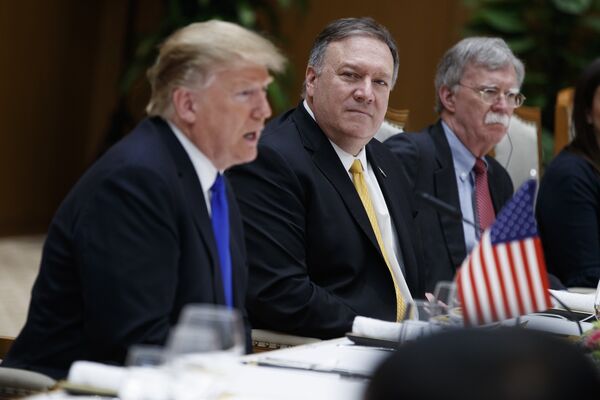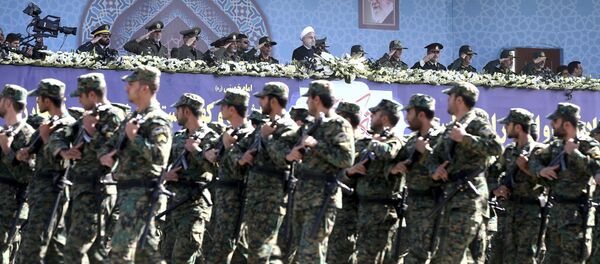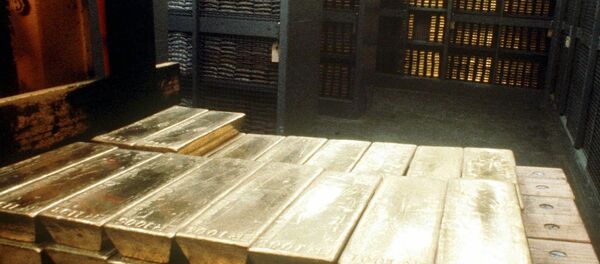Washington's flip-flops on Iran shows that the US administration is growing impatient while trying to coerce Iran. Speaking to ITV's Good Morning Britain on 5 June, President Donald Trump dropped the hint that there's "always a chance" of the US taking military action against the Islamic Republic, adding however, that he'd rather not. At the same, the Trump administration has started signalling willingness to hold a dialogue with Iran: "We're prepared to engage in a conversation with no preconditions", Secretary of State Mike Pompeo told journalists on 2 June. However, Tehran dismissed this signal as "wordplay" amid the ongoing US military build-up in the Persian Gulf region.
Pye Ian, a Los Angeles-based senior economics analyst, private equity executive and commentator at Newsbud.com, explains why Tehran has turned a deaf ear to the Trump administration's game of threats and offers and what's at the core of Washington's persistent attempts to tame Iran.
Sputnik: Following the introduction of a new "pressure campaign" targeting Iran's energy sector by the Trump administration, US Secretary of State Mike Pompeo signalled on 2 June that the US is willing to talk with Iran "with no preconditions". What's behind this apparent change of heart in your opinion?
Pye Ian: The neoconservative-hatched quasi-plan of confronting Iran militarily was meant to scare Tehran — just as such a quasi-plan was meant to scare North Korea — into coming "voluntarily" to the supposed renegotiation table. Such a tactic worked for North Korea, considering the — at the least — positive optics for Trump of shaking Kim Jong-un's hand on camera and thereby projecting a profile of global strength and decisiveness. Iran didn't fall for it, however, and on principle, refuses to negotiate with Washington, because it would inevitably prove futile, just as did the JCPOA non-pact, which Washington unilaterally pulled out of despite Iran holding religiously (literally) to the deal's proclaimed statutes for nuclear non-proliferation.
On the latter point, Iran is working diligently toward divorcing completely from the international petrodollar energy pricing standard set between a Henry Kissinger-led Washington, London, and Swiss finance, King Fahd and Sheik Yamani of Saudi Arabia, and eventually, the rest of OPEC back in the early to mid-1970s.
Trump, Pompeo, and company wanting to now speak directly with Iran is thus a patch-up tactic for, ultimately, trying to slow down the latter delinking away from dollar reliance for oil trading, while buying time for sowing the seeds of somehow trying to spark "regime change" within Tehran.

Sputnik: Why has Iran repeatedly dismissed Washington's calls for starting talks amid the economic downturn in the Islamic Republic? Under what circumstances might Tehran start the negotiations, in your opinion?
Pye Ian: Following from my last sentence, Iran recognises the Atlanticist bluff, as well as certainly the stakes the transatlantic community is playing for — namely, one of trying to, at the very least, prevent an unruly, disastrous unravelling of fiscal risks spread across many large financial institutions operating at multiples of debt levels seen only 11 years ago. The continuing sanctity of the current Western-banking-led global financial system — however over-leveraged and derivatives-drenched it is — relies nonetheless on "confidence" in the US dollar as continuing reserve currency and petrocurrency standard.
Any sustained momentum away from such an (increasingly untenable) arrangement means that the US Fed cannot practice its monetary policies to service its dual mandates of keeping the national employment level respectable (hint: it's not, as the real rate of US unemployment is above 20 percent, based on decades-old measuring metrics which had been tactically abandoned over two decades ago) and inflation low (hint again: it's not either, as true inflation is at least three times what the consumer purchase index (CPI) figures state "officially", if one counts consumables and services people actually use).
READ MORE: Trump Says US, France on Same Page With Regard to Iran
READ MORE: How Countries Drifting From Dollar to Multicurrency System Using Gold as Hedge
So, Iran dismisses calls by Washington to "negotiate" because it rightfully sees such gestures as catastrophic wastes of time, and for all involved. Iran also sees them as delay tactics meant to ultimately block any senses of momentum achieved economically, monetarily and geopolitically with the East. One would be hard-pressed to see Iran's decision-making as not being influenced to a certain extent by Iran's Eastern allies, either, considering their shared interests in wanting to maintain individual state sovereignty while working together constructively.
That said, Iran perhaps might consider stepping forward to speak publicly with US officials were the latter to lift persistent economic sanctions placed against Iran in a true fashion.
Sputnik: What's your prognosis on the escalation of tensions in the Persian Gulf? Will Iran eventually close the Strait of Hormuz if Washington steps up the pressure?
Pye Ian: If Atlanticists do not, in sobriety, view Iran as a "Not Afghanistan / Iraq / Syria / Libya" situation; if the West does not start showing credible signs of trustworthiness through the lifting of sanctions and related means, then Iran will only dig harder into the ground with its heels while firming up further its continuing geostrategic work with the East.
The "out-of-the-box thinking" here for Washington is thus to try — as sincerely as it can muster — to engage Iran respectively, concretely and economically in order to attempt to pull Iran westward. I.e., Washington should grant EU nations such as Italy, Greece, Germany and others free trade autonomy with Iran, and the same for India, Turkey and other nations, rather than block their respective dealings with Iran.
READ MORE: Iran Calls US-China Trade War ‘International Challenge'
It is highly doubtful that Washington will do so, however, as it continues to try to reach "innovative means" of causing uprisings across Iran to emulate those of 40 years ago, despite Iran routinely identifying Western spies across the MENA [Middle East and North Africa] and preserving its secure borders.
Iran will not wantonly close the Strait of Hormuz, nor certainly attack any US or US-allied military assets, despite desperate means being tapped by neoconservatives in trying to spark "conflict initiation" with Iran via false flag incidents either at sea or on land. Were Iran to be attacked, however, then Iran would indeed immediately seal off the Strait of Hormuz, because it would be one of Tehran's last straws, considering that sanctions, hyperinflationary currency assaults, embargoes, assassinating scientists, technological sabotage and other acts of belligerence against Iran have already constituted routine acts of war which have gone unanswered by the international community.
READ MORE: Trump Hopes to Make Iran Submit Without Fighting, But Bolton Wants War — CIA Vet
Iran and its partners know well, as does the entire West and South, that closing Hormuz to oil and other commercial traffic would torpedo hundreds of trillions of dollars' worth of actionable derivatives contracts floating in the financial ether, considering how important of a commodity oil is to global finance, and how the means of trying to resolve the 2008 financial crisis involved kicking debt cans down the road with existing large banking, insurance, private investment, and sovereign financial firms.
Such a move by Iran wouldn't simply be a "wounded elephant flailing in a cage" act, either. Iran has done its homework and knows how brittle the true state of global finance is. Let alone how close Eastern powers are getting to declaring a dollar replacement strategy through mixes of physical gold exchanges, cryptocurrencies, gold trade notes, endless energy and minerals stockpiles, production prowess and foremost, trust, which comes at an unprecedented premium nowadays. By attacking Iran, Washington and/or its allies would be burning their own village to try and save it.
Pye Ian is a senior economics analyst and commentator at Newsbud.com. He is also a private equity executive, former precious metals commodities trader and strategic planning executive.
The views expressed in this article are solely those of the contributor and the speaker and do not necessarily reflect the official position of Sputnik.





